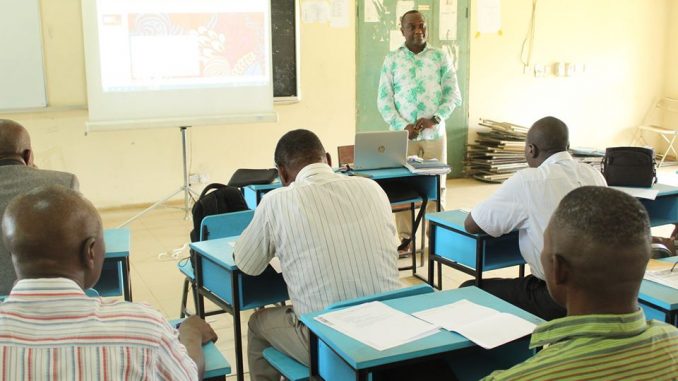
EU FACILITATES STUDY EXPLORING THE EFFECTS OF INDIGENOUS LANGUAGE COMMUNICATION ON LEARNING OUTCOMES AT EARLY GRADES
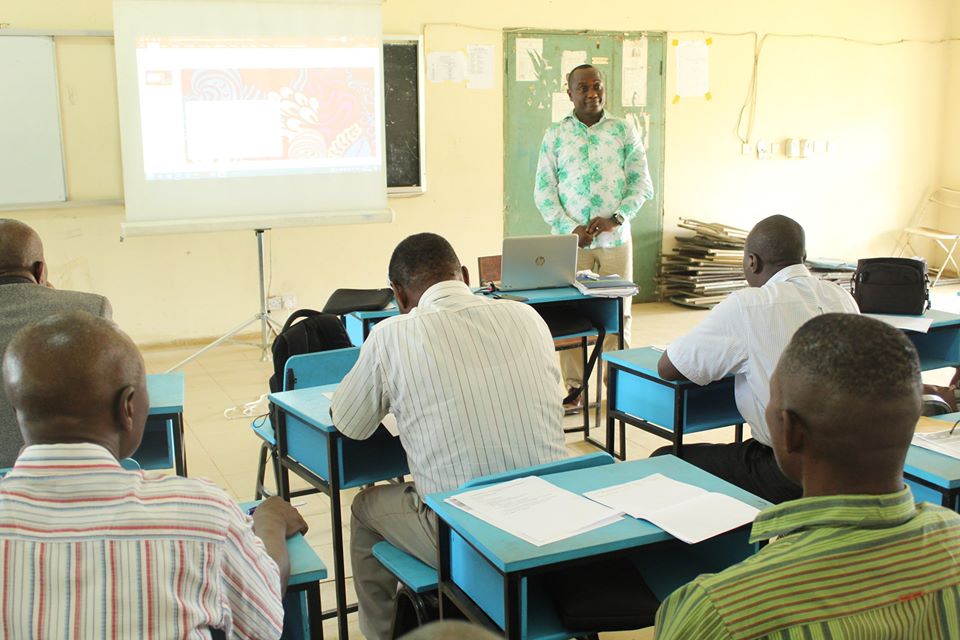
Dr Nathaniel King presents the findings of the study to educators from across the education spectrum
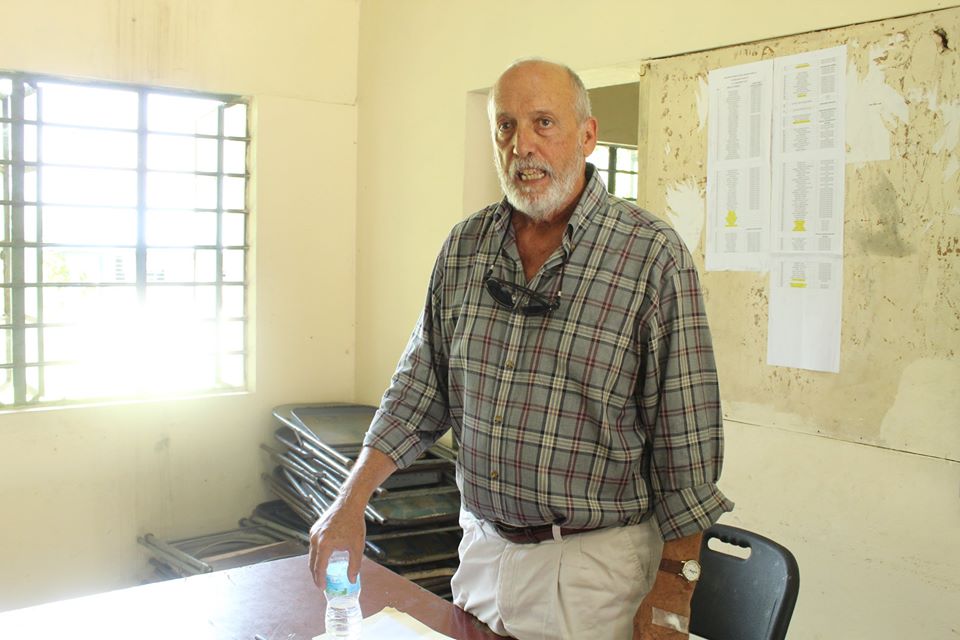
Dr James Wile described the activity as the “creation of new knowledge”.
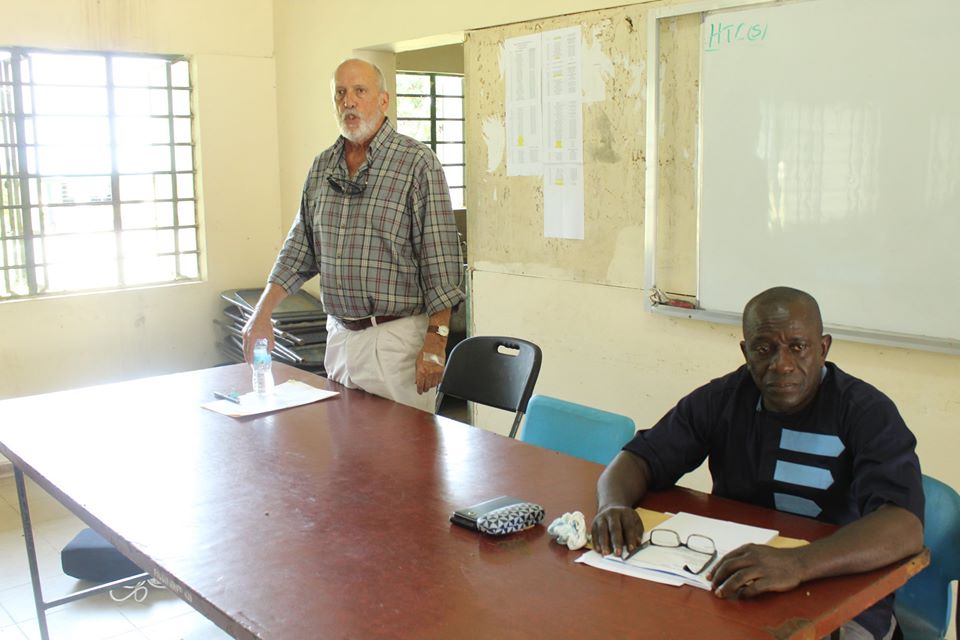
Dr James Wile (left) was the lead consultant for the study and Dr Samba Moriba (right) was a key researcher
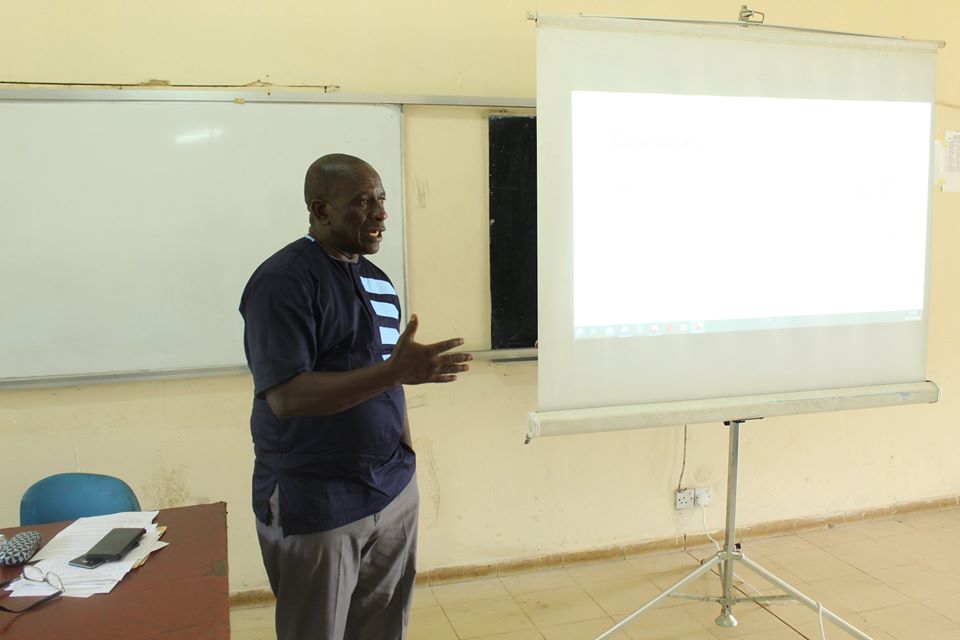
Dr Samba Moriba: “One of the challenges teachers in this country face is how to communicate with our learners so as to enhance learning.”
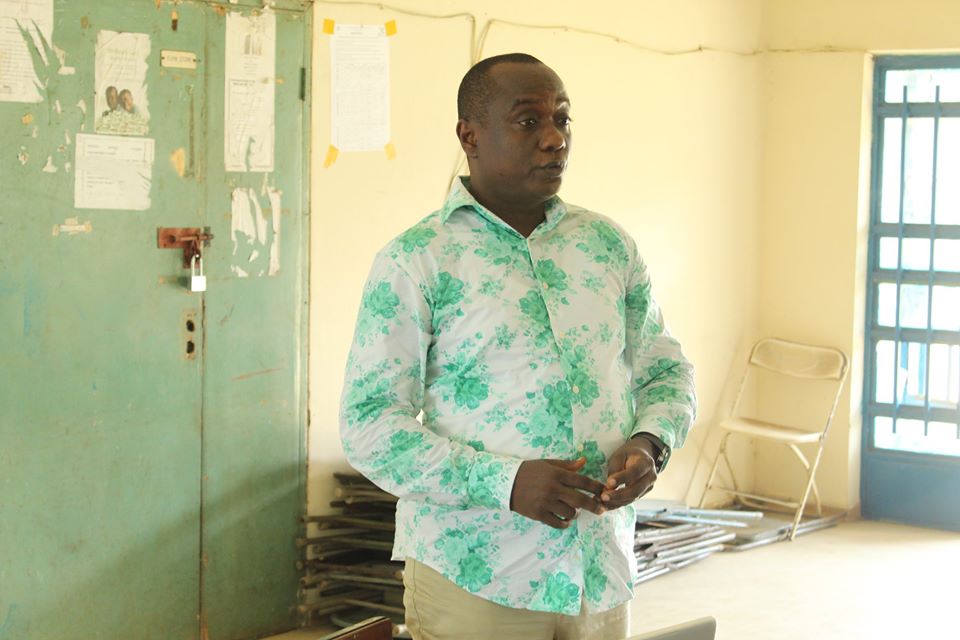
Dr Nathaniel King: “We needed to see what the performances would be like, when the language of instruction was the local community-based language and when the language of instruction was in English.”
A primary goal of the European Union-funded Support to the Education Sector in Sierra Leone (SESSiL) programme is to work with Government to improve the quality of teaching and learning, especially at primary school level. This has been achieved through a series of capacity building initiatives aimed at teachers, with a view to improving learning outcomes in the classroom. In a further step towards teacher education enhancement, the EU in 2018 supported a study that aimed to sensitize teacher trainers on the importance of language and its effect on teaching and learning at early grades.
Although English is considered the language of instruction in basic, senior secondary and tertiary education, proficiency in the English language has proven to be a challenge, hence a barrier to quality learning outcomes, especially at primary school level. The study titled Randomized Control Trial of Mother Tongue Instruction and Learning Outcomes in the Early Grades, sought to explore the relationship between the language of instruction and pupil learning of content and cognitive skills.
A report on the study was compiled, followed by a recent public presentation held on the campus of Freetown Teachers College, under the leadership of the Ministry for Technical and Higher Education (MTHE). Acting Principal of Freetown Teachers College, Dr Samba Moriba, who was also one of the key researchers, noted that “One of the challenges teachers in this country face is how to communicate with our learners so as to enhance learning.” The study, he continued, was not intended to influence policy but to provide options to policy makers on how to deal with this challenge.
Dr James Wile, Lead Consultant for the study, described the activity as the “creation of new knowledge”, which, he encouraged every educator should strive to do once they have absorbed all documented information about their profession.
Addressing an audience of educators from across the education spectrum in Sierra Leone, the principal researcher for the study, Dr Nathaniel King, indicated that in conducting the study, experimental and control classes were set up in Bo, Kenema, Port Loko and Bombali. These classes were limited to Class One level, where researchers agreed it was most likely that evidence of language impact would be revealed.
Over the period of one month, a total of 1,400 children were instructed via lesson plan notes that had recently been distributed to teachers throughout Sierra Leone and mandated as the instructional text and pedagogy for schools. The children were drawn from government schools in rural and urban areas, based on recommendations from various Deputy District Education Officers. They were then divided into control classes, which were instructed with lesson notes in in English, and experimental classes, which were instructed with lesson notes that had been translated into the targeted indigenous languages of Mende, Temne, Limba and Krio.
To determine the rate at which learning had taken place in both groups, children were asked a series of questions designed to find out whether they were able to identify and remember key pieces of information from the lesson notes. “We needed to see what the performances would be like for the same questions, when the language of instruction was the local community-based language and when the language of instruction was in English,” Dr King explained.
Comparison between the performances in the control and experimental groups showed that the experimental group (children who benefited from the local language being the medium of instruction) developed faster than the control group (children who received instruction from the lesson plan notes in English). It was also discovered, that some teachers, when asked to teach in an indigenous language that they claimed to have mastered, struggled to do so because though they could speak the language fluently, they could neither read nor write in the language. Some children, particularly from urban areas, did not perform well when instructed in their mother tongue, which shows that they did not fully understand the language on the level required for effective learning to take place. It was therefore concluded that in order for mother tongue or indigenous languages to be an effective medium of communication in the classroom, both learners and teachers should be linguistically competent in the language of instruction.
Concluding the presentation, Dr Moriba asserted that the study revealed the need and potential for change within the education system, in terms of the manner in which lessons are delivered. “My dream is that policy makers will use the findings,” he said. “If we have a community that speaks a particular language, let us allow our children to start learning in that language and then make a later transition to lesson delivery in English.” Addressing the linguistic lapses associated with teaching in indigenous languages, he said that educators in teacher training institutions should seriously consider the linguistic requirements needed by teachers and learners to achieve valuable learning outcomes.
The presentation generated enthusiastic discussion on technical, methodological issues associated with the topic, as well as practical applications of the findings. Coinciding with the Ministry’s long-range goal of creating a research network, stakeholder participants came up with the following recommendations:
• Set up a National Council for Educational and Scientific Research
• Establish an annual prize for outstanding research
• Establish an annual conference for research and practice and
• Develop a course on research methodology for aspiring scholars (including classroom teachers and college lecturers) on the methods of conducting qualitative and quantitative scholarly research.

Leave a Reply